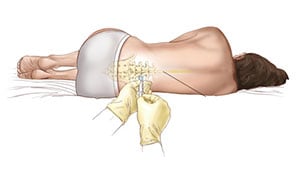Prevention
Keeping up to date with recommended vaccines is the best protection against meningococcal disease. Maintaining healthy habits, like getting plenty of rest and not having close contact with people who are sick, also helps.

Getting vaccinated is the best way to protect yourself from meningococcal disease.
Vaccination
The best way to prevent meningococcal disease is to get vaccinated. CDC recommends meningococcal vaccination for
- All preteens and teens
- Children at increased risk for meningococcal disease
- Adults at increased risk for meningococcal disease
Antibiotics
Close contacts of a person with meningococcal disease should receive antibiotics to prevent them from getting sick. Experts call this prophylaxis (pro-fuh-lak-sis). Examples of close contacts include:
- People in the same household
- Roommates
- Anyone with direct contact with a patient’s oral secretions (saliva or spit), such as a kissing partner
Doctors or local health departments recommend who should get prophylaxis.
Re-infection
Although rare, people can get meningococcal disease more than once. A previous infection will not offer lifelong protection from future infections. Therefore, CDC recommends meningococcal vaccines for all preteens and teens. In certain situations, children and adults should also get meningococcal vaccines.
If you get meningococcal disease twice, your doctor should check to see if you have an underlying immune deficiency.



